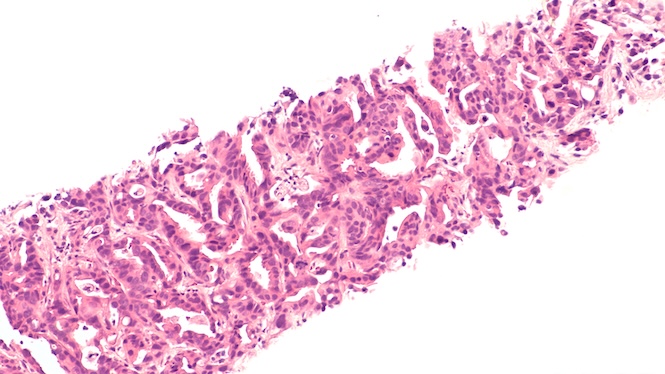Recently published in JAMA, findings of the HeLiX Randomized Clinical Trial, an 8-year multicentre trial, demonstrate that among patients undergoing liver resection for a cancer-related indication, tranexamic acid did not reduce bleeding or blood transfusion but increased perioperative complications.
11 hepatopancreaticobiliary sites across Canada and the United States participated in the placebo-controlled, randomized trial including Ontario Hospitals Sunnybrook Health Sciences Centre, Unity Health Toronto, University Health Network, London Health Sciences Centre, Kingston General Hospital and Hamilton Health Sciences.
Liver resection is an optimal treatment for patients with primary or metastatic liver malignancies, with 15 to 25 per cent of these patients receiving perioperative blood transfusions. Intraoperative blood loss and transfusion are major risk factors for postoperative morbidity and mortality and are strongly associated with long-term cancer recurrence and lower overall survival.
Previous studies have found that in a variety of surgical procedures, tranexamic acid – a medication used to treat or precent excessive blood loss – reduces the probability of receiving a blood transfusion. However, this evidence is largely derived from cardiac and orthopedic surgery, in which bleeding often occurs from small vessels. As a major abdominal surgery, intraoperative bleeding during liver resection often occurs from large vessels. The Hemorrhage During Liver Resection: Tranexamic Acid (HeLiX) trial was conducted as a response to the gaps in evidence supporting the use of tranexamic acid in cancer surgery like liver resection.
“We wanted to see if tranexamic acid had a significant impact on red blood cell transfusion in major abdominal surgeries like liver resection, as it does in other types of surgery,” explains Dr. Paul Karanicolas, scientist in the Odette Cancer Research Program at Sunnybrook and principal investigator of the study. “The results of the trial have a significant impact on the use of tranexamic acid, emphasizing a cautious approach to the adoption of tranexamic acid in certain surgical procedures.”


